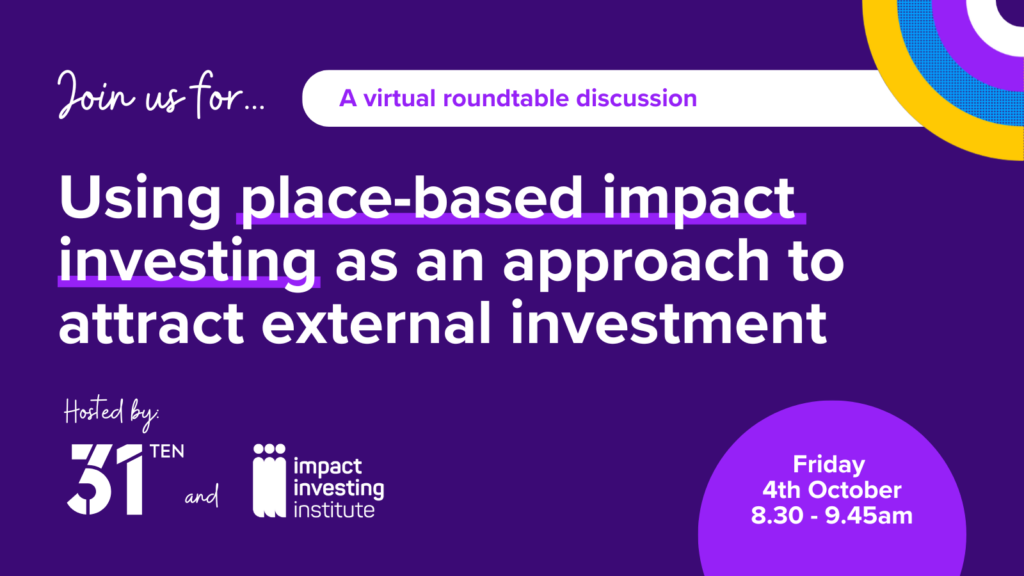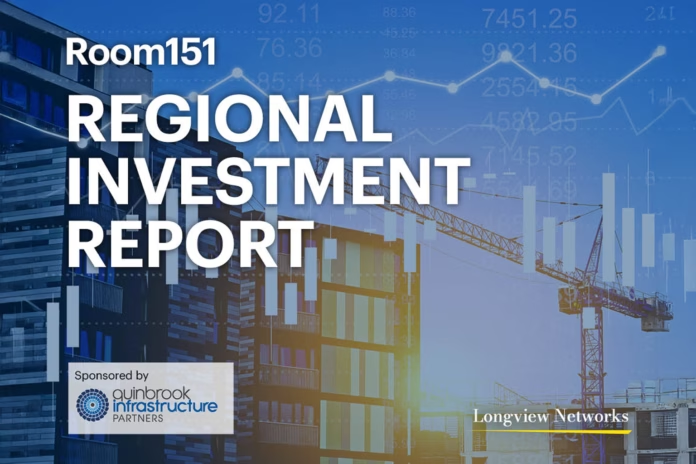Local authorities can unlock many benefits by adopting a Place-Based Impact Investing (PBII) approach, as Laura Bridges, director at 31ten Consulting, and Mark Hall, senior programme manager at the Impact Investing Institute, explain.
As the new government prepares its first budget amid significant public finance shortfalls, the public sector remains under pressure to deliver more with less. This challenge is coupled with a renewed focus on driving local economic growth and the potential for fiscal devolution within local government.
To navigate these pressures, innovative investment approaches are emerging like Place-Based Impact Investing (PBII), helping to attract external investment and shape markets to deliver strategic priorities, place-making, and long-term financial sustainability.
Responding to the market: market failure vs market shaping
Market intervention presents tangible opportunities for the public sector to play a strategic role in the economic development of its communities, although balancing market efficiency with avoiding stifling innovation and competition is key.
Traditionally, public sector interventions have focused on addressing market failures where the private sector fails to meet market demand, such as access to finance for underrepresented groups. Historically, government intervention has involved one-way grants or contract payments without expectations of financial returns, which is increasingly unsustainable.
Instead of responding to failures, a market shaping approach recognises that markets can be intentionally influenced and prioritised to achieve specific social, economic, and environmental goals. This approach allows the public sector to strategically steer investment towards opportunities that align with its strategic priorities, fostering resilient and inclusive economies.
31ten took this targeted approach in supporting Camden Council to tackle inequality and strengthen its communities through preparing a business case for the funding, design and structure of a Community Wealth Fund. The £30m Community Wealth Fund is a social impact investment fund to grow a more inclusive economy in the borough, provide different types of investment to local businesses, organisations and people to develop their ideas and grow their impact in Camden, and support those who have struggled to access finance through existing routes.
Place-Based Impact Investing (PBII)
PBII is an investment approach that targets social, environmental and economic impacts within specific geographic areas, addressing local needs and challenges by directing investment into projects that benefit specific regions or communities.
The Impact Investing Institute’s 2021 white paper, ‘Scaling up institutional investment for place-based impact’, delivered in partnership with The Good Economy and Pensions for Purpose, highlighted the low levels of domestic investment from the UK’s Local Government Pension Scheme (LGPS), finding that less than 1% of their £320bn assets were invested in the UK in 2020, with only a fraction of that having a measurable positive impact. The report recommended that 5% of LGPS funds be allocated to local impact, potentially unlocking more than £16bn annual private investment – a policy adopted by the previous government.
PBII requires the building of trust between investors, local authorities, and communities to ensure investments align with local needs and priorities. This can involve a mix of different types of investors, including pension funds, insurance firms, asset managers, banks, social investors, family offices and endowments, who channel their investments into sectors such as affordable housing, clean energy, SME finance, infrastructure, and regeneration – each with their own expectation on impact, risk appetite and financial return.
PBII is increasingly relevant as local authorities seek to leverage additional funding to support inclusive economic growth, reduce inequality, and drive innovation. External factors such as long-term underinvestment in certain regions, the growing supply of impact capital, and an emerging track record of successful PBII initiatives are further stimulating this interest, and the government’s focus on regional growth and devolution has created new opportunities for local authorities to allocate resources more effectively.
PBII also aligns with local authority priorities, such as addressing housing needs, investing in green infrastructure, renewable energy, and empowering local communities by involving them in the decision-making process. By adopting a PBII approach, local authorities can better understand available funding sources and connect these funding opportunities to relevant local needs, creating a more targeted and effective investment strategy.
Over the past few years, there has been a marked increase in LGPS investments in PBII sectors, catalysing innovative strategies for scale and diversity. Examples of successful PBII initiatives include Cheyne Capital’s affordable housing project for key workers in Manchester, Foresight Group’s regional SME funds, and Cornwall Pension Fund’s Local Impact portfolio which channels LGPS investment into social and environmental priorities, including affordable housing and renewable assets. Encouragingly, a recent survey indicates that 64% of LGPS funds are planning to increase their commitment to local investments, signalling a significant shift in the sector.
Conclusion
PBII offers significant opportunities for local authorities and the public sector to drive sustainable local development, attract new sources of capital, and create lasting and holistic positive impact in their communities. However, successful implementation requires addressing challenges, building capabilities and partnerships, and aligning local needs with investor interests.
As local authorities and public sector organisations increasingly explore the potential of PBII as an approach, get in touch with Laura Bridges for a further discussion on how this could work for your communities.
To learn more about place-based impact investing, register here for a free, online roundtable discussion co-hosted by 31ten Consulting and the Impact Investing Institute. Engage with experts, learn from specific case studies, share best practices, and discover how PBII can unlock private investment and shape resilient, inclusive economies.















